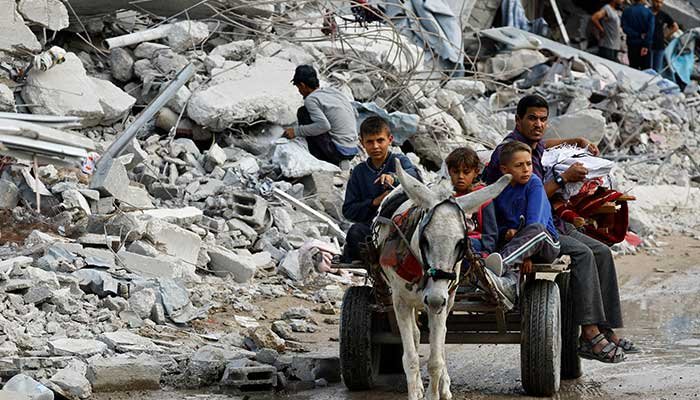A growing number of diplomats and regional officials warn that Gaza may be drifting toward a de facto partition, as efforts to advance former US President Donald Trump’s post-war plan hit a dead end. Without a significant US push to revive negotiations, the “yellow line” that currently divides Israeli-controlled zones from the rest of Gaza could solidify into a long-term border.
—hasAccording to six European diplomats involved in the process, the initiative’s second phase—which includes Israel pulling back from the yellow line, forming a transitional governing authority, deploying a multinational force, disarming Hamas, and beginning reconstruction — has stalled completely. With no timelines or actionable mechanisms in place, hopes for progress are fading fast.
Under the first phase, launched on October 10, Israel controls roughly 53% of Gaza, including large agricultural regions, Rafah, and parts of Gaza City. Meanwhile, nearly two million Palestinians are crowded into makeshift camps and debris-filled zones, relying almost entirely on aid for survival.
Reuters drone footage from November illustrates the scale of destruction in northeast Gaza City, where Israel’s final offensive before the ceasefire flattened entire districts. The territory is now physically and politically divided between Hamas-held areas and Israeli military positions.
Trump’s plan envisions Israel withdrawing further once Hamas disarms and an international security force is in place. But Hamas refuses to surrender its weapons, Israel rejects a return of the Palestinian Authority, and global powers remain reluctant to send troops who may have to confront local armed groups.
—theJordan’s Foreign Minister Ayman Safadi summed up the deadlock: “We all want the conflict to end — the question is how to make it work.”
—haveMeanwhile, US officials—including Vice President JD Vance and Trump adviser Jared Kushner — have suggested that reconstruction could begin only in Israeli-held areas, creating “model zones.” Analysts warn this could cement a long-term partition, separating Gaza into two unequal regions.
Israel maintains it does not seek to reoccupy Gaza but intends to enforce a buffer zone to prevent future attacks. Fresh infrastructure, fortified military outposts, and the placement of yellow concrete barriers show Israel entrenching its position.
In Palestinian-administered neighborhoods, Hamas has resurfaced, deploying police and municipal workers to restore basic order. The group claims it is willing to hand governance to a technocratic Palestinian body, provided reconstruction is fair across all regions.
—aSome European officials are exploring whether Hamas could decommission weapons under international monitoring rather than directly handing them over — a concept Israel strongly opposes. Thousands of Palestinian Authority officers trained abroad are ready to deploy, but Israel rejects their return to Gaza.
Diplomats warn that unless the US pressures Israel to accept a political roadmap involving the Palestinian Authority and eventual statehood, the current ceasefire may be the final phase of the plan, not the beginning of reconstruction.
—somethingFunding also remains a massive barrier. Rebuilding Gaza is expected to cost $70 billion, but Gulf states refuse to invest without guarantees of Palestinian sovereignty — something Israel continues to resist.
Jordan and other Arab nations insist that Gaza must remain one unified territory. Palestinian leaders also reject any form of partition, stating that true stability requires full Palestinian control and internationally recognized borders.
Yet for civilians like Gaza resident Salah Abu Amr, uncertainty looms:
“If redevelopment only happens across the yellow line, who gets to go there? Will families be separated again?”
As diplomatic paralysis deepens, the fear grows that a temporary division could quietly harden into Gaza’s new reality, prolonging suffering and pushing the dream of Palestinian statehood even further away.
#GazaCrisis #MiddleEastConflict #TrumpPlan #GazaReconstruction #IsraelGaza #HumanitarianCrisis #Palestine #ReutersReport #USForeignPolicy







